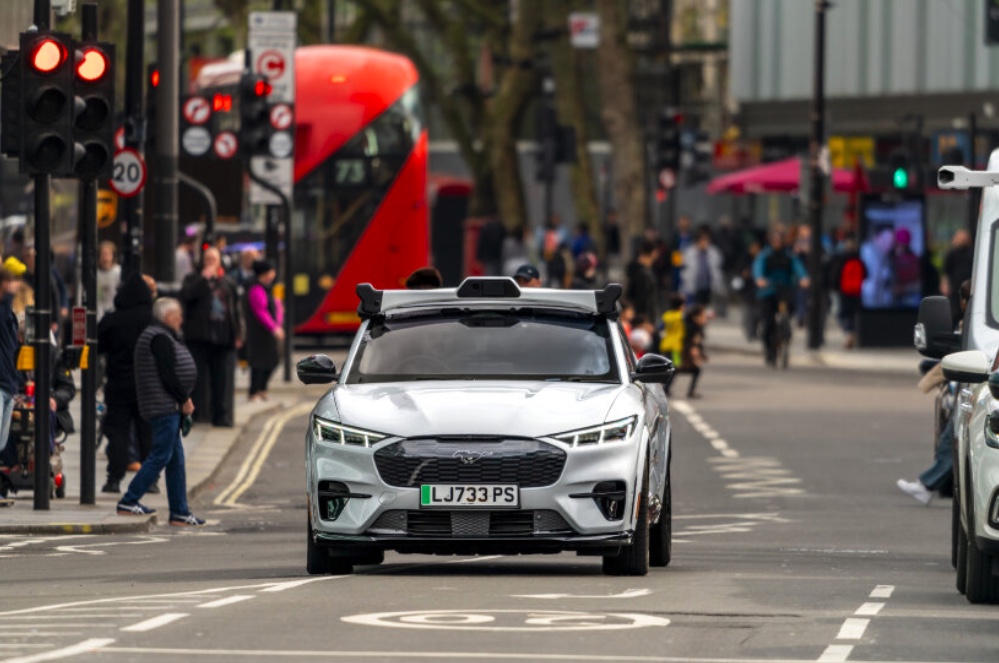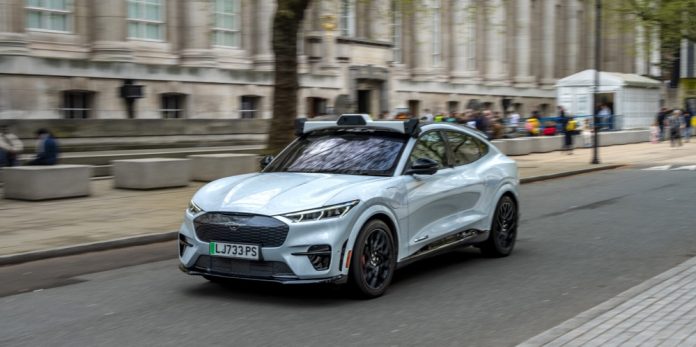Uber จับมือ Wayve สตาร์ทอัพ AI อังกฤษ เตรียมทดลองให้บริการ “แท็กซี่ไร้คนขับ” ครั้งแรกในยุโรป กลางกรุงลอนดอน ฤดูใบไม้ผลิปี 2026 โดยรถจะไม่มีคนขับหรือพนักงานรักษาความปลอดภัยอยู่บนรถ หวังพัฒนาเทคโนโลยีขับเคลื่อนอัตโนมัติให้รถสามารถรับมือกับสถานการณ์บนท้องถนนได้ด้วยตนเอง
การทดลองนี้เกิดขึ้นภายใต้กรอบกฎหมายใหม่ของสหราชอาณาจักร ที่เปิดทางให้มีการทดสอบบริการแท็กซี่และรถโดยสารแบบไร้คนขับ ที่ใช้จะขับเคลื่อนด้วยระบบ AI แบบเรียลไทม์ ใช้เซนเซอร์และเรดาร์เพื่อตรวจจับสิ่งกีดขวางและสถานการณ์จราจร เทคโนโลยีนี้ไม่เพียงช่วยเพิ่มความปลอดภัยบนท้องถนนผลการศึกษาในสหรัฐฯ ยังพบว่ารถไร้คนขับมีแนวโน้มเกิดอุบัติเหตุน้อยกว่าคนขับจริง เพิ่มโอกาสเข้าถึงบริการขนส่งในพื้นที่ห่างไกล และอาจกลายเป็นทางเลือกใหม่ที่ปลอดภัยกว่าสำหรับกลุ่มผู้โดยสาร เช่น ผู้หญิง หรือผู้สูงอายุ

ภาครัฐคาด เทคโนโลยีนี้จะสร้างงานกว่า 38,000 ตำแหน่ง และเพิ่ม GDP อังกฤษกว่า 42 พันล้านปอนด์ภายในปี 2035 พร้อมช่วยยกระดับระบบขนส่ง โดยเฉพาะในพื้นที่ชนบทและสำหรับผู้พิการ อย่างไรก็ตาม เสียงค้านยังมี ทั้งจากสหภาพแรงงานและคนขับแท็กซี่ที่กังวลว่าจะถูกแทนที่ แม้บางฝ่ายมองว่า “ยังเร็วเกินไป” และ “คนยังไม่ไว้ใจหุ่นยนต์ดูดฝุ่น แล้วจะไว้ใจให้พาลูกไปโรงเรียนหรือรับแม่กลับบ้านได้อย่างไร”
แม้ยังต้องใช้เวลาในการพิสูจน์ความปลอดภัยและความพร้อมของสาธารณชน แต่ Uber และ Wayve มั่นใจว่าการทดลองครั้งนี้คือก้าวแรกของอนาคต ซึ่งจะช่วยสร้างความเชื่อมั่น เปิดตลาดใหม่ และวางรากฐานสำหรับการให้บริการขนส่งที่ไร้คนขับอย่างเต็มรูปแบบภายในไม่กี่ปีข้างหน้า
Uber is teaming up with UK-based AI startup Wayve to launch Europe’s first driverless taxi service trial in central London by spring 2026. The autonomous vehicles will operate without a safety driver onboard, aiming to develop technology capable of independently navigating real-world road conditions.
This groundbreaking trial follows new UK legislation allowing small-scale autonomous taxi and shuttle services to operate under real-world conditions. The vehicles will be powered by real-time AI systems, using sensors and radar to detect obstacles and respond to traffic situations. Beyond improving safety—studies in the U.S. show autonomous cars tend to be less accident-prone than human drivers—this technology could also expand transport access in remote areas and offer a safer alternative for vulnerable groups such as women and the elderly.
The UK government predicts the autonomous vehicle industry could create over 38,000 jobs and boost the country’s GDP by £42 billion by 2035. Officials also hope the technology will modernize public transport, especially in rural communities and for people with disabilities.
Still, not everyone is on board. Labor unions and taxi drivers have voiced concerns over potential job losses, with some critics saying the public isn’t ready to trust machines. “People don’t even trust robot vacuum cleaners—how can they trust one to take their kids to school or pick up their elderly parents?” one skeptic remarked.
Despite the debate, Uber and Wayve are betting on a future where driverless technology reshapes urban mobility—starting with London.
#Uberdriverless #WayveAI #driverlesstaxis #updatenews #TheThailandder
ที่มา : www.theguardian.com , www.bbc.com
















